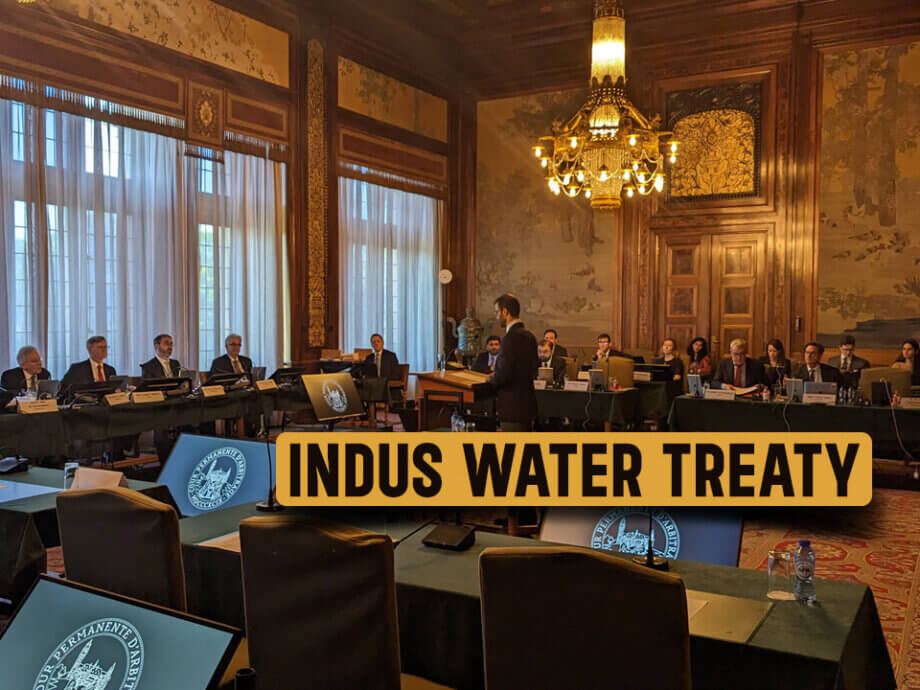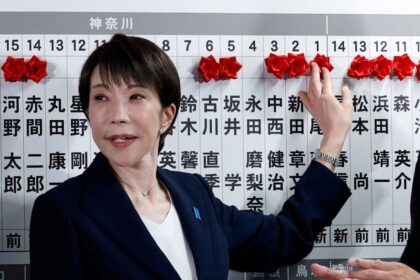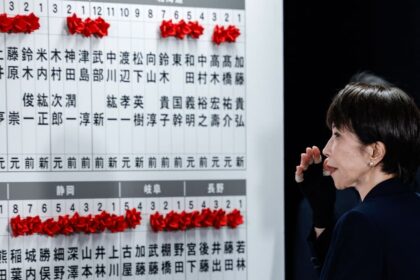The Indus Waters Treaty Dispute: A New Flashpoint in India-Pakistan Relations
The decades-old Indus Waters Treaty (IWT), a cornerstone of water-sharing and diplomacy between India and Pakistan, has become the center of a major international legal and diplomatic dispute. In June 2025, the Permanent Court of Arbitration (PCA) in The Hague issued a supplemental award, ruling that India cannot unilaterally suspend or hold the treaty in abeyance. This decision has been welcomed by Pakistan and categorically rejected by India, deepening tensions between the two nuclear-armed neighbors.
- The Indus Waters Treaty Dispute: A New Flashpoint in India-Pakistan Relations
- What Is the Indus Waters Treaty?
- Background: The Kashmir Attack and India’s Response
- The Legal Battle: Pakistan’s Case at The Hague
- India’s Rejection: Sovereignty and Legal Arguments
- Pakistan’s Response: Vindication and Calls for Dialogue
- Why the Indus Waters Treaty Matters
- The Kishenganga and Ratle Projects: Technical Disputes and Broader Implications
- International Law and the Vienna Convention
- Broader Geopolitical and Environmental Stakes
- What Happens Next?
- In Summary
The ruling comes amid heightened hostilities following a deadly attack in Indian-administered Kashmir, which India blamed on Pakistan. In response, India announced it would place the IWT in abeyance, a move Pakistan called an “act of war” and a violation of international law. The PCA’s decision reaffirms the treaty’s validity and the court’s jurisdiction, setting the stage for further legal and diplomatic battles.
What Is the Indus Waters Treaty?
Signed in 1960 after nine years of negotiations and brokered by the World Bank, the Indus Waters Treaty is one of the world’s most successful water-sharing agreements. It allocates the waters of six rivers in the Indus Basin between India and Pakistan:
- Eastern Rivers (Sutlej, Beas, Ravi): Allocated to India for unrestricted use.
- Western Rivers (Indus, Jhelum, Chenab): Allocated to Pakistan, with India allowed limited use for non-consumptive purposes such as hydropower.
The treaty includes detailed provisions for data sharing, dam construction, and a robust dispute resolution mechanism involving neutral experts and, if necessary, a Court of Arbitration. For over six decades, the IWT has survived wars and political crises, providing a rare channel for dialogue between the two countries.
Background: The Kashmir Attack and India’s Response
On April 22, 2025, a terrorist attack in Pahalgam, Indian-administered Kashmir, killed 26 people. India immediately blamed Pakistan for supporting cross-border terrorism, a charge Islamabad denies. In retaliation, India announced it would place the Indus Waters Treaty in abeyance, suspending its obligations under the agreement until Pakistan “credibly and irrevocably abjures its support for cross-border terrorism.”
This was the first time in the treaty’s history that either country attempted to suspend or unilaterally alter its operation. Pakistan responded by calling the move illegal, citing the treaty’s lack of any provision for unilateral suspension, and threatened legal action under the 1969 Vienna Convention on the Law of Treaties.
The Legal Battle: Pakistan’s Case at The Hague
Pakistan formally initiated arbitration proceedings at the PCA, challenging India’s actions and seeking clarification on the court’s jurisdiction. The dispute also centers on technical objections raised by Pakistan regarding the design of India’s Kishenganga and Ratle hydroelectric projects in Jammu and Kashmir, which Islamabad claims violate the treaty’s terms.
The PCA’s supplemental award, issued on June 27, 2025, addressed two key questions:
- Does the court have jurisdiction to hear the dispute despite India’s suspension of the treaty?
- Can India unilaterally suspend or hold the treaty in abeyance?
The PCA’s Ruling: No Unilateral Suspension Allowed
The PCA ruled unanimously that the Indus Waters Treaty remains valid and operational, and that India’s unilateral decision to place it in abeyance has no legal effect. The court found that:
- The treaty contains no provision for unilateral suspension or abeyance.
- The treaty continues in force until terminated by mutual consent of both parties.
- Unilateral suspension would undermine the treaty’s compulsory third-party dispute settlement process.
The PCA press release stated:
The Court first considered the terms of the Treaty (IWT), which do not provide for the unilateral ‘abeyance’ or ‘suspension’ of the Treaty; rather, according to its terms, the Treaty continues in force until terminated with the mutual consent of India and Pakistan.
The court further emphasized that its competence to hear the case remains intact, regardless of how India characterizes its actions under international law.
India’s Rejection: Sovereignty and Legal Arguments
India has categorically rejected the PCA’s supplemental award and the very legitimacy of the court itself. The Ministry of External Affairs (MEA) issued a strongly worded statement, asserting that:
- India has never recognized the existence in law of the so-called Court of Arbitration.
- The constitution of the arbitral body is, in India’s view, a serious breach of the Indus Waters Treaty.
- Any proceedings or awards by the court are considered illegal and void.
The MEA further argued that India, as a sovereign nation, has the right under international law to suspend its treaty obligations in response to acts of terrorism. The ministry described the PCA’s actions as a “charade at Pakistan’s behest” and accused Islamabad of using international forums to avoid accountability for terrorism.
India’s position is that the dispute should be resolved through the treaty’s neutral expert mechanism, not through arbitration, and that the PCA’s involvement is itself a violation of the treaty’s terms.
Pakistan’s Response: Vindication and Calls for Dialogue
Pakistan has welcomed the PCA’s ruling as a major legal and diplomatic victory. The Foreign Office stated that the award “vindicates Pakistan’s position that the Indus Waters Treaty remains valid and operational, and that India has no right to take unilateral action about it.”
Deputy Prime Minister and Foreign Minister Ishaq Dar emphasized the importance of upholding international agreements:
The ruling confirms that the Indus Waters Treaty (IWT) remains fully valid. India cannot unilaterally hold it in ‘abeyance’. States are measured by their adherence to international agreements. The IWT must be upheld in both letter & spirit.
Pakistan has called on India to immediately resume the normal functioning of the treaty and fulfill its obligations. The government also reiterated its readiness for meaningful dialogue on all outstanding issues, including water, trade, terrorism, and the status of Jammu and Kashmir.
Why the Indus Waters Treaty Matters
The Indus Waters Treaty is not just a technical water-sharing agreement; it is a vital instrument for peace and stability in South Asia. The rivers of the Indus Basin are the lifeblood of Pakistan’s agriculture and economy, while India relies on them for hydropower and irrigation in its northern states. Any disruption to the treaty could have severe humanitarian, economic, and security consequences for both countries.
The treaty’s robust dispute resolution mechanisms have historically helped prevent water disputes from escalating into open conflict. The current standoff, however, tests the limits of these mechanisms and raises questions about the future of transboundary water cooperation in a region already facing climate stress and population growth.
The Kishenganga and Ratle Projects: Technical Disputes and Broader Implications
At the heart of the current legal battle are two Indian hydroelectric projects:
- Kishenganga Hydroelectric Project: Built on a tributary of the Jhelum River, Pakistan objects to its design, fearing it will reduce water flow into its territory.
- Ratle Hydroelectric Project: Located on the Chenab River, Pakistan has raised similar concerns about water diversion and storage capacity.
Pakistan initially sought resolution through the treaty’s neutral expert process but later requested full arbitration, arguing that the issues were too complex for a technical expert alone. India, meanwhile, has insisted on the neutral expert route and views Pakistan’s move to arbitration as a breach of the treaty.
The World Bank, as a broker of the treaty, appointed both a neutral expert and a Court of Arbitration in 2022, leading to parallel proceedings and further complicating the dispute.
International Law and the Vienna Convention
Pakistan has cited the 1969 Vienna Convention on the Law of Treaties, which governs the creation, interpretation, and termination of international agreements. Under the convention, a party cannot unilaterally suspend or terminate a treaty unless the treaty itself provides for such action or there has been a material breach. The PCA’s ruling aligns with this principle, reinforcing the idea that the IWT can only be altered or ended by mutual consent.
Broader Geopolitical and Environmental Stakes
The Indus Waters dispute is unfolding against a backdrop of broader geopolitical rivalry and environmental stress. Both India and Pakistan are heavily dependent on the Indus Basin for food security, energy, and livelihoods. Climate change is already affecting river flows, glacier melt, and rainfall patterns, increasing the risk of water scarcity and conflict.
Experts warn that any breakdown of the treaty could trigger a “water war” scenario, with catastrophic consequences for millions of people. The PCA’s ruling, while legally binding, does not guarantee compliance or resolve the underlying political tensions. The need for dialogue and cooperation has never been more urgent.
What Happens Next?
The PCA’s supplemental award is binding, but enforcement depends on the willingness of both parties to comply. India’s outright rejection of the court’s authority raises questions about the future of the arbitration process and the effectiveness of international legal mechanisms in resolving such disputes.
Pakistan has expressed hope that the court’s decision will pave the way for a return to meaningful dialogue. The next phase of the arbitration will address the merits of Pakistan’s objections to the Kishenganga and Ratle projects, with a hearing scheduled in The Hague. The outcome could set important precedents for international water law and treaty interpretation.
In Summary
- The Permanent Court of Arbitration ruled that India cannot unilaterally suspend or hold the Indus Waters Treaty in abeyance.
- The court affirmed its jurisdiction to hear disputes under the treaty, despite India’s objections.
- India has categorically rejected the court’s authority and the supplemental award, citing sovereignty and legal arguments.
- Pakistan welcomed the ruling as a vindication of its position and called for the immediate resumption of the treaty’s normal functioning.
- The dispute centers on technical objections to Indian hydroelectric projects and broader issues of terrorism, sovereignty, and international law.
- The Indus Waters Treaty remains a vital instrument for peace, stability, and water security in South Asia, but its future is uncertain amid rising tensions and environmental challenges.












